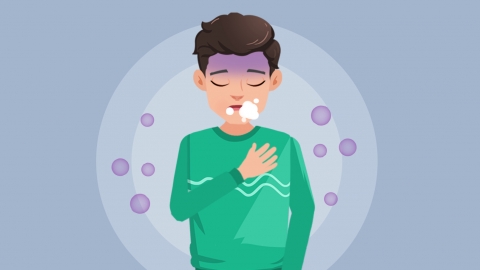Symptoms of poisoning from eating crawfish
Symptoms of poisoning from eating crawfish generally include gastrointestinal discomfort, skin abnormalities, neurological reactions, fever and chills, palpitations, and chest tightness.

1. Gastrointestinal discomfort: After consuming crawfish, one may experience abdominal pain and diarrhea shortly afterward, with loose, watery stools, often accompanied by nausea and vomiting. In severe cases, frequent vomiting prevents eating, and the abdominal pain is mainly concentrated around the navel or upper abdomen, affecting normal life. These symptoms are caused by acute gastroenteritis due to spoiled or undercooked crawfish.
2. Skin abnormalities: In individuals with allergic constitutions, poisoning may rapidly manifest as large areas of red rash or hives on the skin, accompanied by severe itching that may spread throughout the body. Some people may also experience swelling of the lips and eyelids, and in severe cases, swelling of the throat may occur, affecting breathing, which requires immediate medical attention.
3. Neurological reactions: If crawfish are contaminated, neurological symptoms after consumption may include dizziness, headache, fatigue, and even numbness in the hands and feet, muscle weakness, blurred vision, and dilated pupils. These symptoms might indicate nervous system damage, which is critical and requires prompt treatment.
4. Fever and chills: Poisoning caused by bacterial infection often results in fever with temperatures reaching 38°C or higher, along with chills, feeling cold, shivering, and possibly generalized muscle aches resembling severe flu symptoms. One should be vigilant for worsening infection.
5. Palpitations and chest tightness: Toxic reactions may also affect the cardiovascular system, causing palpitations, rapid heartbeat, chest tightness, and difficulty breathing, with symptoms worsening after physical activity. Severe cases may lead to decreased blood pressure, shock, and life-threatening conditions, requiring urgent medical treatment.
If the above symptoms of food poisoning occur, consumption of crawfish should be stopped immediately, and medical attention should be sought promptly. Additionally, any remaining food should be preserved for testing by a doctor to identify the cause and receive appropriate treatment.







